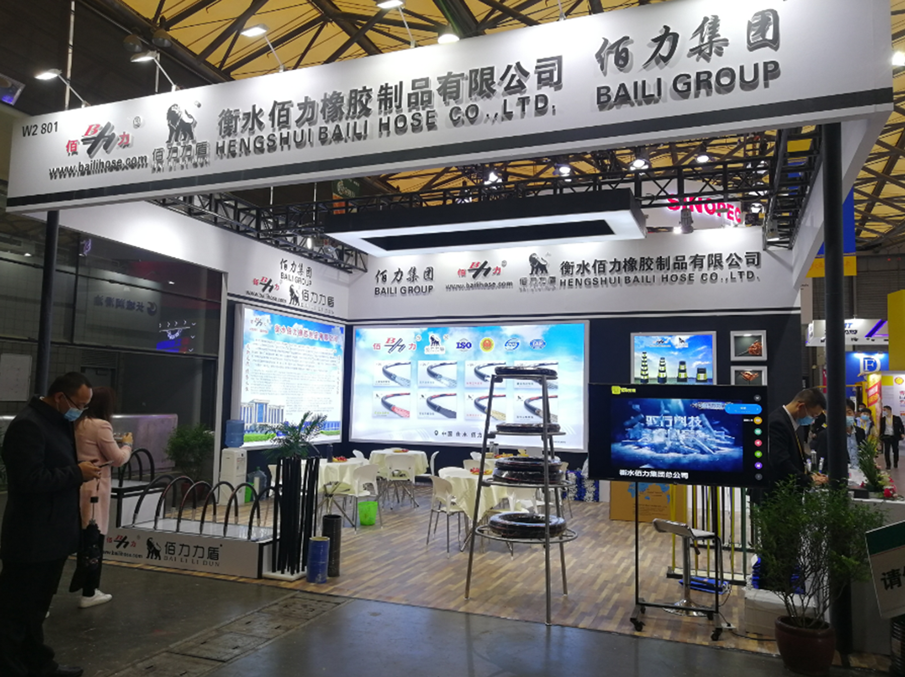Nov . 07, 2024 23:56 Back to list
CE Certification for Thermoplastic Hose Understanding Standards and Quotes in the Industry
Understanding CE Certification for Thermoplastic Hoses Importance and Insights
In the dynamic landscape of industrial manufacturing, ensuring product safety and compliance is paramount. One of the essential certifications that manufacturers and consumers look for is the CE certification. This certification is critical for thermoplastic hoses, which are widely used in various industries including automotive, construction, and agriculture. This article delves into the significance of CE certification for thermoplastic hoses, the certification process, and the implications for manufacturers and consumers alike.
What is CE Certification?
CE certification indicates that a product meets the essential requirements of relevant European safety, health, and environmental protection legislation. The “CE” mark is not a quality mark, but rather a compliance mark that ensures that products can be marketed within the European Economic Area (EEA). For thermoplastic hoses, which are used in a myriad of applications, adhering to CE certification standards is vital to ensure not only regulatory compliance but also consumer safety.
Importance of CE Certification for Thermoplastic Hoses
1. Regulatory Compliance CE certification is mandatory for many products sold in Europe. For manufacturers of thermoplastic hoses, achieving this certification means they can legally market their products within the European market. This opens up vast opportunities for trade and commerce.
2. Consumer Trust When consumers see the CE mark on a product, it assures them that the product has undergone rigorous testing and meets European safety standards. This trust is crucial for manufacturers who want to build a strong brand reputation and foster customer loyalty.
3. Quality Assurance CE certification involves a thorough evaluation of the manufacturing process, materials used, and the final product. This ensures that thermoplastic hoses are not only safe to use but also reliable, reducing the risk of failures that could lead to costly downtimes or accidents in industrial applications.
4. Market Access In addition to the European market, having CE certification can facilitate easier market entry into other regions that recognize CE standards. This could enhance export opportunities for manufacturers.
The Certification Process
Achieving CE certification for thermoplastic hoses involves several steps
ce certification thermoplastic hose quotes

1. Determine Applicable Directives Manufacturers must first identify which European directives apply to their products. For thermoplastic hoses, directives could include Pressure Equipment Directive (PED), Machine Directive, or others that relate specifically to their application.
2. Conduct a Risk Assessment A comprehensive risk assessment needs to be carried out to identify potential hazards associated with the hoses. This step is critical in determining the necessary testing and documentation required to achieve CE compliance.
3. Testing & Documentation Based on the risk assessment, the products must be tested according to the relevant standards. Manufacturers need to compile technical documentation demonstrating conformity to the requirements.
4. Declaration of Conformity After successful testing, manufacturers must draft a Declaration of Conformity, asserting that their products meet all the necessary requirements and regulations.
5. Affix CE Marking Finally, manufacturers can affix the CE mark onto their products, signifying compliance with all applicable regulations.
Implications for Manufacturers and Consumers
For manufacturers, obtaining CE certification represents not only a commitment to quality and safety but also a strategic advantage in the marketplace. It allows them to stand out in a competitive industry and provides access to a broader range of customers seeking reliable products.
For consumers and businesses using thermoplastic hoses, the existence of CE certification provides peace of mind. It ensures that the products they purchase are built to high standards of quality and safety, mitigating the risks associated with faulty hoses, which can lead to dangerous situations or equipment failure.
Conclusion
CE certification is integral to the manufacturing and distribution of thermoplastic hoses in the European market. By adhering to these standards, manufacturers can ensure compliance, enhance consumer trust, and improve their marketability. As industries continue to evolve, the importance of certifications like CE cannot be overstated, and manufacturers must remain diligent in maintaining these standards to thrive in today’s competitive landscape.
-
Best Four Steel Wire Spiral Hose Hydraulic R12 – Durable High-Pressure Hose Manufacturer
NewsJul.08,2025
-
High-Quality 1/4 Hydraulic Hose – Soft, Flexible & Durable Rubber Hoses for Industrial Use
NewsJul.08,2025
-
1 1 2 Inch Hydraulic Flexible Hose - Durable, Reliable, High-Pressure Solutions
NewsJul.07,2025
-
High-Quality 1 2 Rubber Hose - Durable, Flexible Hydraulic Solutions
NewsJul.07,2025
-
Discover SAE Hydraulic Hose Types - High Quality & Durable Hoses from Leading Factory Supplier
NewsJul.06,2025
-
High Pressure Wire Hydraulic Rubber Hose Supplier Durable & Reliable 1SN Hose Solutions
NewsJul.06,2025
